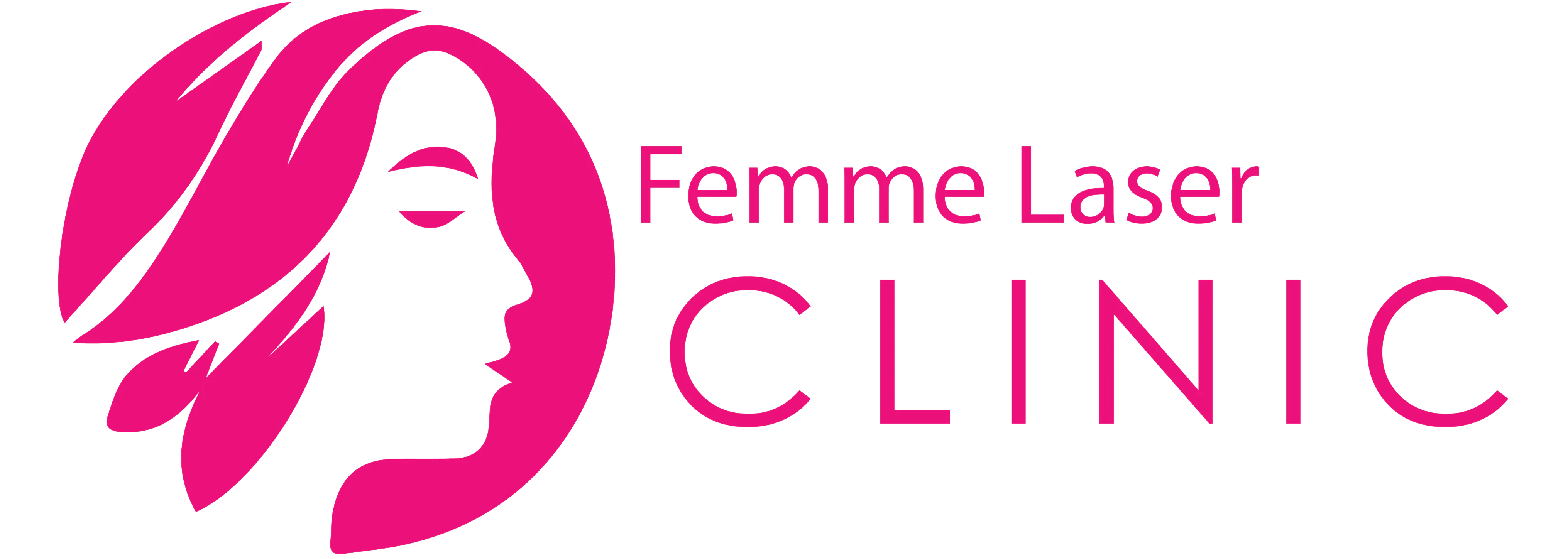Laser hair removal has gained popularity as a reliable and effective method for getting rid of unwanted hair. For individuals with Polycystic Ovary Syndrome (PCOS), a hormonal disorder that often causes excessive hair growth, laser hair removal offers a promising solution. To understand the benefits of laser hair removal for PCOS, it is important to …
Laser hair removal has gained popularity as a reliable and effective method for getting rid of unwanted hair. For individuals with Polycystic Ovary Syndrome (PCOS), a hormonal disorder that often causes excessive hair growth, laser hair removal offers a promising solution.
To understand the benefits of laser hair removal for PCOS, it is important to first comprehend the procedure and its permanence. Laser hair removal utilizes advanced technology to target and destroy hair follicles, leading to long-lasting hair reduction.
PCOS is a condition characterized by hormonal imbalances, resulting in various symptoms including excessive hair growth. These hormonal fluctuations stimulate the growth of dark, coarse hair on areas such as the face, chest, and back.
Laser hair removal is considered a promising solution for PCOS patients due to its ability to selectively target dark, coarse hair while leaving the surrounding skin undamaged. It offers a long-term reduction in hair growth and can greatly improve self-confidence and quality of life for those with PCOS.
Prior to undergoing laser hair removal, PCOS patients should consider certain factors such as the safety of the procedure, potential side effects, and preparation of the treatment area. It is important to consult with a dermatologist or doctor specialized in laser hair removal to discuss individual circumstances and expectations.
During the laser hair removal sessions, individuals can expect some level of discomfort, but most find the procedure tolerable. Multiple sessions are required to achieve optimal results, as hair growth occurs in cycles and not all hair follicles will be in the active growth phase at the same time.
Post-treatment, proper aftercare is essential to ensure the skin recovers well. Though touch-up sessions may be necessary to maintain the desired level of hair reduction, the results of laser hair removal for PCOS patients can be highly rewarding.
If you are considering laser hair removal as a solution for unwanted hair caused by PCOS, it is important to gather comprehensive information and consult with professionals to make informed decisions.
Table of Contents
ToggleKey takeaways:
- Laser hair removal offers a promising solution for unwanted hair in individuals with PCOS: By targeting the hair follicles, laser treatment can effectively reduce hair growth caused by PCOS.
- Laser hair removal can help manage PCOS symptoms: In addition to reducing unwanted hair, laser treatment may also improve other symptoms associated with PCOS, such as acne and hirsutism.
- Laser hair removal is safe for PCOS patients, but precautions should be taken: While generally safe, it is important for PCOS patients to discuss their medical history with a dermatologist and follow pre- and post-treatment care instructions.
Understanding Laser Hair Removal

Photo Credits: Femmelaserclinic.Com by Jose Carter
Understanding laser hair removal involves knowing the process, preparing for the treatment, and following up with proper care.
- Process: Laser hair removal utilizes lasers to precisely target the hair follicles, raising their temperature and inhibiting future growth. It is advisable to undergo multiple sessions for optimal results.
- Preparation: Prior to the treatment, it is important to avoid exposing the skin to direct sunlight and waxing. Shaving the treatment area a day in advance ensures that the laser effectively targets the hair shaft.
- Care: Post-treatment, it is essential to shield the treated area from the sun, regularly moisturize the skin, and refrain from using harsh chemicals or engaging in exfoliation.
Laser hair removal emerged in the 1990s as a groundbreaking technique for reducing unwanted hair. Subsequent technological advancements have enhanced its effectiveness, safety, and accessibility, making it a sought-after solution for individuals of various genders. Today, understanding laser hair removal is imperative for those seeking a lasting resolution to undesirable hair.
What is Laser Hair Removal?
Laser hair removal is a popular cosmetic procedure that utilizes laser technology to effectively eliminate unwanted hair from the body. This procedure targets the pigment in the hair follicles, gently heating them and causing their destruction. As a result, there is a gradual reduction in hair growth over time. For those seeking a long-lasting solution to unwanted hair, laser hair removal is an ideal choice. It’s crucial to note that achieving optimal results may necessitate multiple sessions. To ensure the suitability of laser hair removal for your specific needs, it is advisable to consult with a professional dermatologist.
How Does Laser Hair Removal Work?
Laser hair removal is a procedure that targets the melanin in hair follicles using a concentrated beam of light. By applying heat, the laser effectively destroys the hair follicle and prevents further hair growth. The process begins with the practitioner cleansing and preparing the treatment area, followed by the application of a cooling gel. Using a handheld device, they administer laser pulses, which may result in a tingling or stinging sensation. Achieving optimal results generally requires multiple sessions since the laser specifically targets actively growing hairs while hair growth occurs in cycles. It is essential to adhere to proper aftercare instructions after each session to provide comfort to the treated area and minimize potential complications.
Is Laser Hair Removal Permanent?
Is laser hair removal permanent?
Laser hair removal is a popular option for those seeking long-term reduction of hair growth. While it is not considered completely permanent, it can provide impressive results. Multiple sessions are necessary to target all hair follicles, as they go through different stages of growth. As each session progresses, the hair becomes finer and lighter, making it less noticeable. However, it’s important to note that some hair may regrow over time due to factors like hormonal changes. The outcome of laser hair removal can also vary depending on individual factors such as hair and skin color, as well as the practitioner’s expertise. To maintain the desired results, regular maintenance sessions may be required.
Polycystic Ovary Syndrome and Unwanted Hair

Photo Credits: Femmelaserclinic.Com by William Taylor
Polycystic Ovary Syndrome (PCOS) is a hormonal disorder that commonly causes unwanted hair growth in women.
- One of the causes of unwanted hair growth in women with PCOS is the increased production of androgens, which are male hormones.
- Managing unwanted hair in women with PCOS can be done through various options such as shaving, waxing, and tweezing.
- Laser hair removal is an effective solution for reducing unwanted hair growth. It targets hair follicles and inhibits future growth, providing long-term results. Laser hair removal can be performed on different areas of the body.
- Before considering laser hair removal, it is important to consult with a dermatologist or healthcare professional to ensure its safety and suitability for your individual situation.
Sarah, who had been struggling with excess hair due to PCOS, decided to undergo laser hair removal. After several sessions, she experienced a significant reduction in unwanted hair, which greatly boosted her confidence and improved her quality of life.
What is PCOS?
What is PCOS?
Polycystic ovary syndrome (PCOS) is a hormonal disorder that affects women of reproductive age. It is characterized by the presence of multiple cysts in the ovaries, irregular or absent periods, and excess androgen levels. PCOS can also lead to unwanted hair growth in areas such as the face, chest, and back, known as hirsutism. The condition is caused by an imbalance of hormones, including insulin and testosterone. PCOS is a common condition, affecting approximately 5-10% of women. Understanding PCOS is essential in managing its symptoms and seeking appropriate treatments like laser hair removal.
How Does PCOS Cause Excessive Hair Growth?
Polycystic Ovary Syndrome (PCOS) is the underlying cause of excessive hair growth in women due to hormonal imbalances. The hormonal imbalance in PCOS leads to elevated levels of androgens, specifically testosterone, which stimulate the hair follicles and result in increased hair growth in commonly male-patterned areas such as the face, chest, and abdomen. This excessive hair growth condition is medically termed hirsutism. It occurs as a consequence of the excessive production of androgens, disrupting the normal hair growth cycle. Consequently, the hair follicles become more responsive to androgens causing the growth of thicker and darker hair in undesired areas.
I personally knew an individual who encountered the challenges associated with PCOS and suffered from hirsutism. However, she discovered that laser hair removal was a life-changing remedy which effectively reduced the excessive hair growth and significantly improved her self-confidence.
The Benefits of Laser Hair Removal for PCOS

Photo Credits: Femmelaserclinic.Com by Kevin Gonzalez
Laser hair removal offers several benefits for individuals with PCOS who experience unwanted hair growth. Here are some advantages to consider:
- The Benefits of Laser Hair Removal for PCOS: Laser hair removal provides lasting reduction in hair growth, giving PCOS patients a chance to achieve smoother skin.
- Precision and convenience: The treatment targets specific areas, ensuring that only unwanted hair is affected. With minimal discomfort and quick sessions, it’s a convenient option for busy individuals.
- Improved self-confidence: By significantly reducing unwanted hair, laser hair removal can boost self-esteem and improve body image.
- Reduced risk of skin irritation: Unlike traditional hair removal methods that can cause skin irritation and ingrown hairs, laser hair removal minimizes these issues.
By understanding the benefits of laser hair removal, individuals with PCOS can make an informed decision about their hair removal options.
Why is Laser Hair Removal a Promising Solution?
Laser hair removal is considered a promising solution for unwanted hair due to its high effectiveness and ability to produce long-lasting results. The procedure specifically targets the hair follicles by using concentrated light energy, effectively damaging them and preventing future hair growth. In contrast to temporary methods such as shaving or waxing, laser hair removal provides a more permanent solution by offering long-term reduction. As a result, it has become a popular choice for individuals in search of a lasting solution. Numerous individuals have reported positive outcomes from laser hair removal, such as a noticeable decrease in hair growth, heightened self-confidence, and an overall improvement in their quality of life. A perfect example is Sarah, who struggled with excessive hair growth caused by PCOS. She found that laser hair removal was life-changing for her as it provided her with long-lasting results and helped restore her self-esteem.
Can Laser Hair Removal Help Manage PCOS Symptoms?
Laser hair removal can be a promising solution for managing PCOS symptoms related to unwanted hair growth. By targeting hair follicles with intense pulses of light, this procedure can help reduce hair growth in treated areas. While it may not completely eliminate hair, it has the potential to significantly reduce its density and thickness. Therefore, can laser hair removal help manage PCOS symptoms? In addition to its physical benefits, laser hair removal can also have a positive impact on self-esteem by addressing the emotional toll of excess hair. To determine if laser hair removal is suitable for individual cases of PCOS, it is crucial to consult with a dermatologist or doctor who can assess the unique situation and discuss any potential risks or side effects.
Considerations for Laser Hair Removal with PCOS

Photo Credits: Femmelaserclinic.Com by Matthew Martinez
Considerations for Laser Hair Removal with PCOS
When considering laser hair removal with PCOS, there are a few key factors to keep in mind. It’s important to consult with a qualified professional who has experience working with patients with PCOS. They will be able to tailor the treatment plan to your specific needs and monitor your progress effectively. It’s essential to manage any underlying hormonal imbalances through medical management or lifestyle changes, as this can impact the success of the treatment. Be prepared for a longer treatment duration, as those with PCOS may require more sessions to achieve desired results.
Is Laser Hair Removal Safe for PCOS Patients?
Yes, laser hair removal is considered safe for patients with PCOS. It is highly recommended to consult a dermatologist or doctor prior to undergoing this treatment. PCOS can disrupt hormone levels, which may impact the effectiveness of laser hair removal. Some individuals with PCOS may need additional sessions or experience slower results due to hormonal factors. It is crucial to discuss any ongoing medications or treatments with your medical professional as they may require adjustments during the laser hair removal process. By taking proper precautions and seeking guidance from a healthcare provider, laser hair removal can be a safe and efficient solution for managing unwanted hair in PCOS patients.
Are There Any Side Effects or Risks for PCOS Patients?
Are There Any Side Effects or Risks for PCOS Patients?
Some individuals with PCOS may experience side effects or risks during laser hair removal treatment. Are There Any Side Effects or Risks for PCOS Patients? These can include skin irritation, redness, swelling, and pigmentation changes. PCOS patients may also be at a higher risk of developing folliculitis, a skin infection that occurs after the laser treatment. It is important for PCOS patients to discuss any existing skin conditions or concerns with their dermatologist or doctor before undergoing laser hair removal. PCOS patients should follow proper aftercare instructions and avoid sun exposure to minimize the risk of complications. While laser hair removal can be a promising solution for unwanted hair in PCOS patients, it is crucial to consider potential side effects and risks.
Preparing for Laser Hair Removal with PCOS

Photo Credits: Femmelaserclinic.Com by Nicholas Campbell
To adequately prepare for laser hair removal with PCOS, it is important to take certain steps that will ensure optimal results and minimize potential risks.
- One crucial step is to consult with a dermatologist or laser hair removal specialist who has experience in treating patients with PCOS.
- During this consultation, make sure to inform the specialist about your PCOS condition, any medications you are currently taking, and any changes in your hormone levels.
- Follow any pre-treatment guidelines provided by the specialist, which may include avoiding sun exposure and using specific skincare products.
- To ensure the laser effectively targets the hair follicles, it is recommended to shave the treatment area a day or two before the procedure.
- In order to minimize sensitivity or discomfort, consider reducing or avoiding caffeine and alcohol consumption a few days prior to the treatment.
- Maintaining proper hydration and regularly moisturizing your skin leading up to the procedure will help keep your skin healthy and hydrated.
- Remember that achieving the desired outcome may require multiple laser sessions, so it is important to be patient and realistic with the results.
Laser hair removal has been a groundbreaking solution for individuals struggling with unwanted hair, including those with PCOS. Thanks to technological advancements, it has become an effective and convenient long-term hair reduction option. By following these necessary steps and working closely with professionals, individuals with PCOS can benefit from the confidence and convenience that laser hair removal provides.
What Should I Discuss with My Dermatologist/Doctor?
Before undergoing laser hair removal, it is important to have a discussion with your dermatologist or doctor to ensure a successful treatment. Here are the key points you should address:
1. Medical Conditions, Medications, and Allergies: Inform your healthcare provider about any medical conditions, medications, or allergies you have. This information will help determine if you are a suitable candidate for laser hair removal.
2. Expectations and Clarifications: Discuss your desired outcomes with your doctor and clarify any misconceptions you may have about the procedure. Your doctor will explain the realistic results you can expect.
3. Skin Sensitivity and Reactions: If you have a history of skin sensitivity or reactions to previous treatments, inform your doctor. This will help them customize the treatment plan to minimize discomfort or potential side effects.
4. Treatment Options: Your doctor can explain the different laser technologies available and recommend the most suitable one for your skin type and hair color. They can also discuss alternative treatments if laser hair removal is not the best option for you.
5. Pre-Treatment Preparations: Your doctor will provide guidance on pre-treatment care, such as shaving or avoiding sun exposure, to ensure optimal results.
Pro-tip: Prepare a list of questions to ask your dermatologist or doctor during the consultation to make sure all your concerns are addressed.
How to Prepare Your Skin for Laser Hair Removal?
To properly prepare your skin for laser hair removal, follow these steps:
- Shave the treatment area a day or two before the session to ensure the laser targets the hair follicle accurately.
- Avoid sun exposure for at least two weeks before the treatment to reduce the risk of complications.
- Avoid using any self-tanning products or spray tans on the treatment area, as they can interfere with the laser’s effectiveness.
- Avoid plucking, waxing, or electrolysis in the treatment area for at least six weeks prior to the session to allow the hair follicles to be in the active growth phase.
- Clean the treatment area thoroughly and avoid applying any lotions, creams, or cosmetics on the day of the session.
- Don’t forget to discuss any medications or medical conditions with your dermatologist to ensure they won’t interfere with the treatment.
True story: Sarah diligently followed these steps before her laser hair removal sessions and achieved amazing results with smooth, hair-free skin that lasted for years. She was glad she took the time to properly prepare her skin and make the most of her laser hair removal treatments.
What Medications or Treatments Should Be Avoided?
Certain medications and treatments should be avoided before undergoing laser hair removal. If you are wondering what medications or treatments should be avoided, it is important to inform your dermatologist or doctor about any medications you are currently taking. Some medications can increase the sensitivity of the skin to light, which can lead to adverse reactions during the treatment. Common medications to avoid include photosensitizing drugs, such as certain antibiotics, antifungals, and acne medications. As for treatments, it is best to avoid chemical peels, waxing, and plucking. These can interfere with the effectiveness of laser hair removal. To ensure a safe and successful laser hair removal experience, consulting with a healthcare professional is essential.
The Laser Hair Removal Process

Photo Credits: Femmelaserclinic.Com by Gregory Flores
- The Laser Hair Removal Process involves several steps to effectively and safely remove unwanted hair. Here is a list of the key steps in the process:
- Consultation: Meet with a qualified professional to discuss your hair removal goals, medical history, and suitability for the procedure.
- Preparation: Prepare the treatment area by trimming the hair to a certain length and avoiding sun exposure or tanning before The Laser Hair Removal Process.
- Protection: Both the patient and the technician wear protective eyewear to shield their eyes from The Laser Hair Removal Process during the treatment.
- Laser application: The technician applies a handheld laser device to the treatment area, which emits intense pulses of light that target the hair follicles.
- Discomfort management: Cooling methods or numbing creams may be used to minimize discomfort during The Laser Hair Removal Process.
- Multiple sessions: The Laser Hair Removal Process requires multiple sessions spaced several weeks apart to achieve optimal results.
- Aftercare: Following each session of The Laser Hair Removal Process, you may experience some redness or irritation, and it is important to follow post-treatment instructions for best results.
By adhering to these steps, The Laser Hair Removal Process can effectively provide long-lasting hair reduction.
What to Expect During Laser Hair Removal Sessions?
During laser hair removal sessions, you can expect a safe and efficient procedure that targets hair follicles with laser energy. What to Expect During Laser Hair Removal Sessions? The process begins with the application of a cooling gel or device to minimize discomfort. A handheld laser device is then used to emit pulses of light onto the treatment area. You may feel a mild sensation, similar to the snapping of a rubber band, as the laser targets the hair follicles. The duration of each session depends on the size of the treatment area, but they typically range from 15 minutes to an hour. Multiple sessions are usually required for optimal results. During the process, it’s important to follow any aftercare instructions provided by your dermatologist or technician.
How Many Sessions Are Required for Optimal Results?
To achieve optimal results with laser hair removal, it is important to consider how many sessions are required. The number of sessions needed can vary depending on factors such as hair type, skin color, and treatment area. Here are the steps to follow:
- Consultation: Schedule a consultation with a qualified dermatologist or licensed technician to assess your specific needs and discuss the number of sessions required for optimal results.
- Treatment plan: Based on the consultation, a personalized treatment plan will be created to outline the recommended number of sessions.
- Interval between sessions: Laser hair removal sessions are typically spaced 4-6 weeks apart. This interval allows for targeting actively growing hair and maximizing the effectiveness of the treatment.
- Multiple sessions: Most individuals will require anywhere from 6-8 sessions to achieve the desired results. The number of sessions may vary depending on individual factors and the specific treatment area.
- Hair growth cycle: It is important to note that hair goes through different growth phases. By undergoing multiple sessions, all hair follicles can be targeted at various stages, ensuring comprehensive treatment.
By following this approach and completing the recommended number of sessions, you can maximize the effectiveness of laser hair removal and achieve optimal results.
Aftercare and Maintenance

Photo Credits: Femmelaserclinic.Com by Russell Perez
- After undergoing laser hair removal treatment, it is crucial to prioritize aftercare and maintenance for optimal results.
- Ensure the treated area remains clean and dry, preventing infection. It is important not to touch or scratch the area.
- Avoid sun exposure, and for added protection against UV rays, use a broad-spectrum sunscreen.
- Refrain from using harsh skincare products or exfoliators on the treated area.
- To keep the skin hydrated and supple, make sure to moisturize regularly.
- For the first few days, avoid hot showers, saunas, or any activities that may induce excessive sweating.
- If you experience any redness, swelling, or discomfort, applying a cold compress can provide soothing relief.
- To achieve the desired results, it is recommended to follow up with your dermatologist for any additional sessions.
How to Take Care of Your Skin Post-treatment?
Wondering how to take care of your skin post-treatment? After undergoing laser hair removal treatment, it’s crucial to follow proper care steps for optimal healing and to avoid complications. Here are some guidelines to help you take care of your skin:
- Apply soothing creams or gels recommended by your dermatologist to alleviate any redness or irritation.
- Avoid hot showers, saunas, or activities that may cause excessive sweating for at least 24-48 hours.
- Avoid direct exposure to sunlight or tanning beds and make sure to use sunscreen with a high SPF to protect the treated area.
- Avoid exfoliating or using harsh skincare products on the treated area for at least a week.
- Keep the treated area clean and dry to prevent infection.
So, how did someone who followed these post-treatment care steps fare? Well, they experienced significant improvements in their skin, with minimal discomfort and quick recovery. It’s truly essential to take care of your skin after the treatment!
Are Touch-up Sessions Necessary?
- Are touch-up sessions necessary for maintaining the results of laser hair removal?
- Individual hair growth cycles and hormonal changes may result in regrowth over time.
- Touch-up sessions can help target any remaining or new hair that may have become active.
- The frequency of touch-up sessions varies depending on individual factors.
- A pro-tip: Consult with your dermatologist to determine the appropriate timing and frequency of touch-up sessions for your specific needs.
Additional Resources

Photo Credits: Femmelaserclinic.Com by George Brown
There are valuable additional resources available for those seeking more information on laser hair removal and PCOS. Here are some reliable sources to consider:
| 1. | Mayo Clinic: They provide comprehensive information on PCOS, its symptoms, and treatment options. Their website is a great starting point for understanding this condition. |
| 2. | American Academy of Dermatology: They offer in-depth articles on laser hair removal, its effectiveness, and potential side effects. This resource can help you make informed decisions. |
| 3. | PCOS Awareness Association: This organization advocates for education and support regarding PCOS. They provide helpful resources, including webinars and downloadable materials. |
| 4. | Medical journals: Research studies in reputable medical journals can provide valuable insights into the latest advancements and evidence-based approaches to hair removal for PCOS patients. |
By exploring these additional resources, you can gather more information on laser hair removal and PCOS to make well-informed decisions and discuss potential treatments with healthcare professionals. Remember to consult with a qualified medical specialist for personalized advice and recommendations.
Facts About Laser Hair Removal and PCOS: A Promising Solution for Unwanted Hair:
- ✅ Laser hair removal is a safe and effective way to combat the symptoms of Polycystic Ovarian Syndrome (PCOS). (DermaCare)
- ✅ PCOS is a hormonal disorder that affects many women in their reproductive years, causing increased and thicker hair growth on the face and body. (Source: Jean Hailes)
- ✅ Laser hair removal is completely safe for women with PCOS and has helped many find relief from excess hair growth. (Source: Blue Water Spa)
Frequently Asked Questions
Is laser hair removal effective for managing unwanted facial hair growth caused by PCOS?
Yes, laser hair removal is an effective solution for reducing and thinning unwanted facial hair growth caused by PCOS. It has been proven to be safe and provides long-term results.
How many laser hair removal treatments are typically required for PCOS sufferers?
The number of laser hair removal treatments required may vary from person to person. However, on average, PCOS sufferers may require 6 to 8 treatments to minimize hair growth and achieve desired results.
Who performs the laser hair removal treatments for PCOS patients?
All laser hair removal treatments for PCOS patients are performed by highly trained medical professionals, under the supervision of a medical doctor. These professionals have the necessary expertise and experience to ensure safe and effective treatment.
Can laser hair removal effectively treat all types of hair?
Laser hair removal targets pigmented hair, so it may not be as effective on blonde, white, or red hair. However, it is highly effective for reducing and removing dark, coarse hair commonly associated with PCOS.
Is laser hair removal less painful compared to other hair removal methods like waxing or electrolysis?
Yes, laser hair removal is generally less painful than other methods like waxing or electrolysis. The treatments are comfortable and typically take less than 30 minutes on average, while electrolysis can be a more painful and time-consuming process.
Is laser hair removal a permanent solution for hair growth caused by PCOS?
Yes, laser hair removal is a permanent solution for removing hair growth caused by PCOS. The hair is destroyed at the root, and once treated, it will never grow back, eliminating the need for shaving or tweezing. The Unlimited Package™ ensures guaranteed results for life, covering any stray or new hair that may appear in the future.





